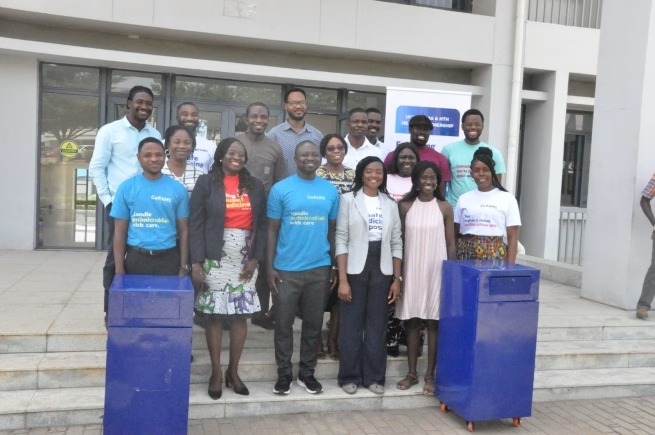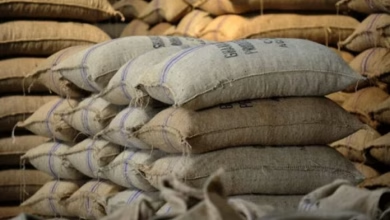EPA Raises Alarm Over Improper Waste Disposal in Volta Region Hospitals

- EPA Raises Concerns Over Hospital Waste Disposal
- TBUM Project Aims to Improve Waste Management
- New Bins to be Installed in Hospitals and Pharmacies
The Environmental Protection Agency (EPA) has raised serious concerns regarding improper waste disposal practices in hospitals across the Volta Region, particularly with the disposal of sharps and blood-soaked cotton in bins designated for paper, medicines, and other non-infectious waste.
Speaking at a stakeholders’ meeting on the Take Back Unwanted Medicines (TBUM) project on Thursday, November 28, EPA Assistant Programmes Officer Wise Cosmos Dargbey highlighted the significant risks associated with such practices.
The TBUM project, initiated by the Food and Drugs Authority (FDA), aims to retrieve unused and expired medicines from consumers for safe disposal in accordance with the Public Health Act. The initiative, which is supported by local pharmacies, seeks to incorporate sustainability into the lifecycle of pharmaceutical products in Ghana.
Mr. Dargbey expressed concern about the dangers of improper waste disposal, emphasizing that it poses risks not only to those who handle the waste but also to the general public. “For instance,” he explained, “wastes, including unused medicines, wrongfully disposed often end up in water bodies and in the soil, posing dangers to animals, plants, aquatic life, and, for that matter, the public.” He urged hospital management to prioritize waste segregation as part of their broader public health responsibilities.
The TBUM Project Lead, Dr. Cornelius Dodoo, provided further insight into the project’s implementation. The initiative is a collaborative effort between University College London Hospitals NHS Trust, the University of Health and Allied Sciences (UHAS), and the Ho Teaching Hospital, with support from the Commonwealth Pharmacists Association and Global Health Partnerships in the UK.
Dr. Dodoo explained that the project takes a “one-health” approach to tackle antimicrobial resistance (AMR), focusing on the interconnection between the health of the environment, humans, and animals. As part of the initiative, 15 new bins have been procured and will be strategically placed in hospitals and pharmacies.
“After building the capacity of the Ho Teaching Hospital for some time, we are now working with the Volta Regional Hospital in Hohoe, Ho Municipal Hospital, Ketu South Municipal Hospital in Aflao, and Margaret Marquart Hospital in Kpando,” Dr. Dodoo informed stakeholders.
The project’s stakeholders expressed optimism about its potential to improve waste management practices and enhance public health in the region.






